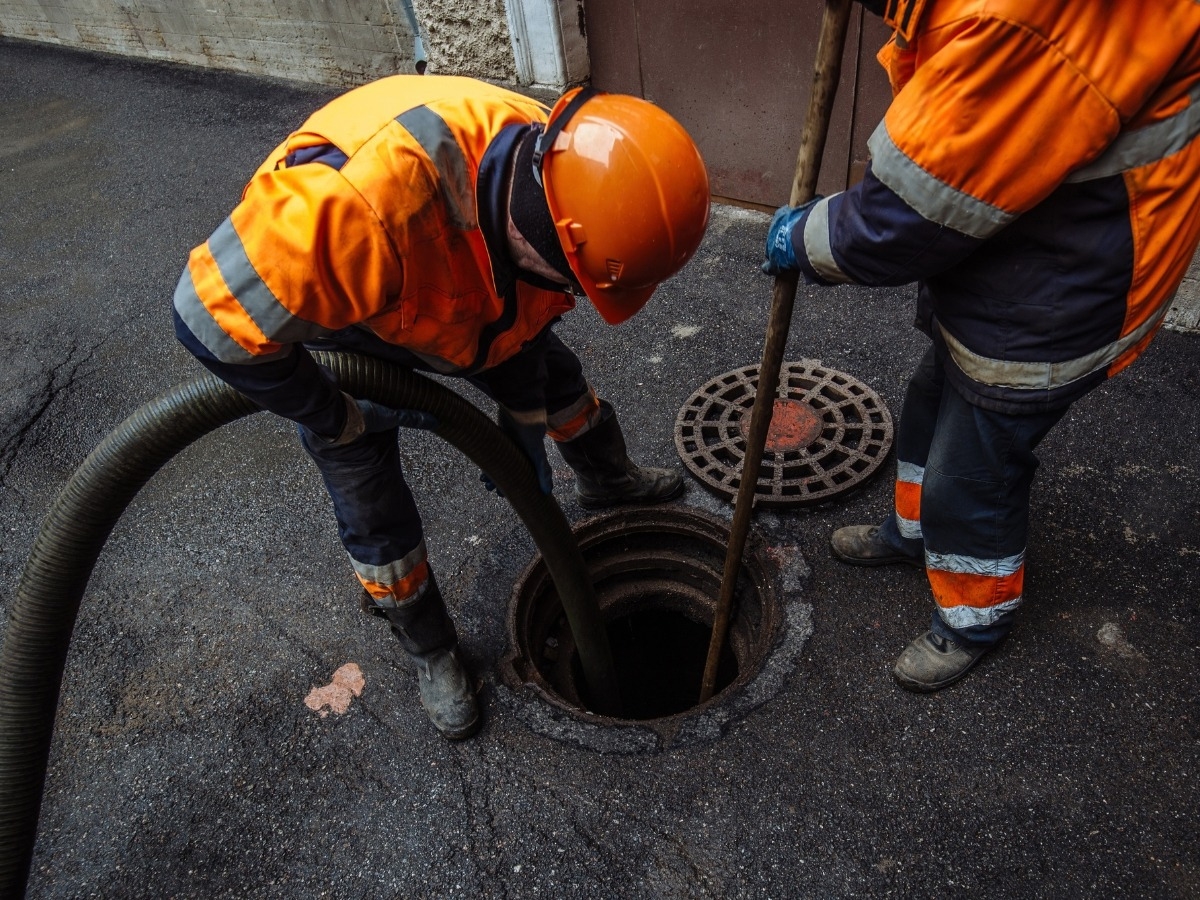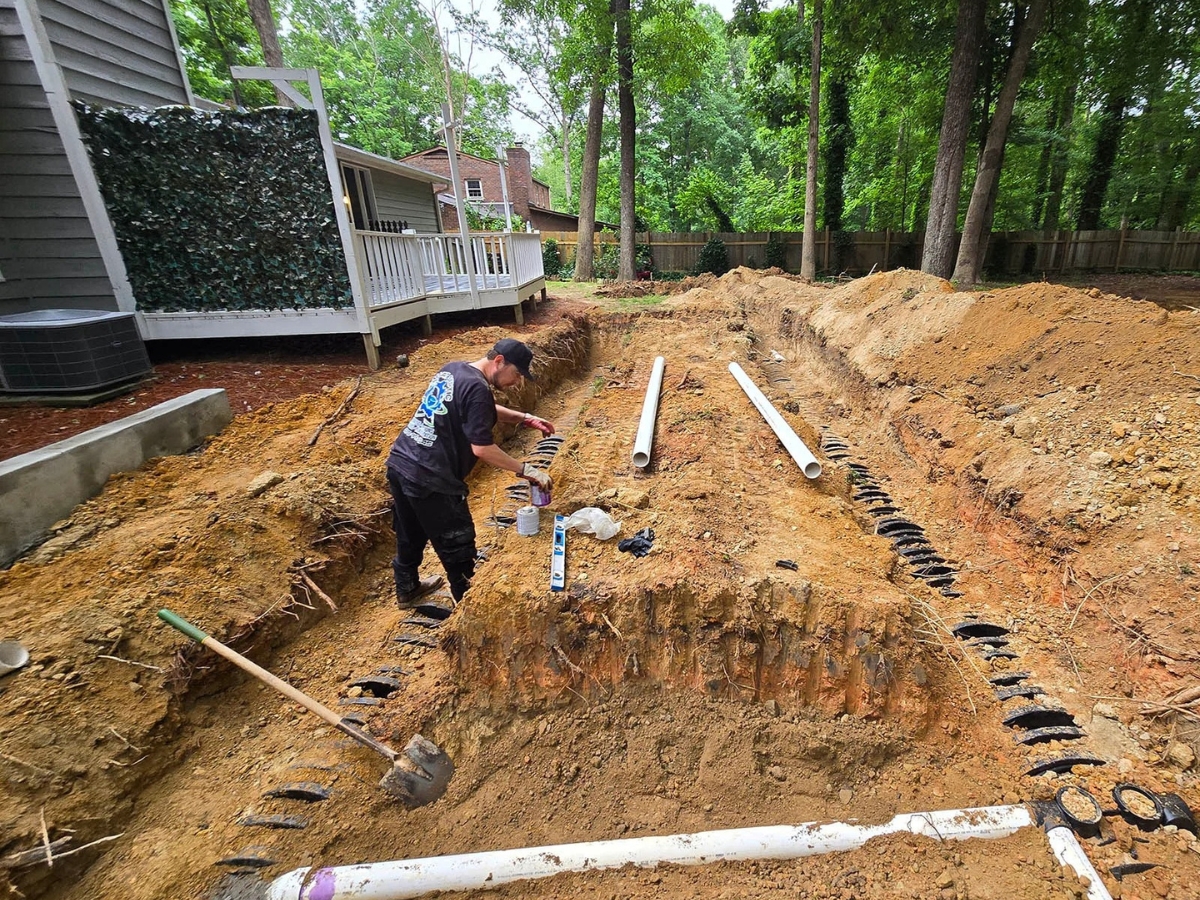Georgia‘s septic system regulations can be complex for homeowners. This guide simplifies key regulations, covering installation guidelines, maintenance requirements, and legal considerations. By understanding these rules, you’ll ensure your septic system complies with state laws, avoids costly fines, and operates efficiently. Learn how to protect your property and the environment while avoiding common septic system pitfalls with this overview of Georgia septic system regulations.
Georgia Septic System Regulations Made Simple
Overview of Georgia Septic System Regulations for Homeowners
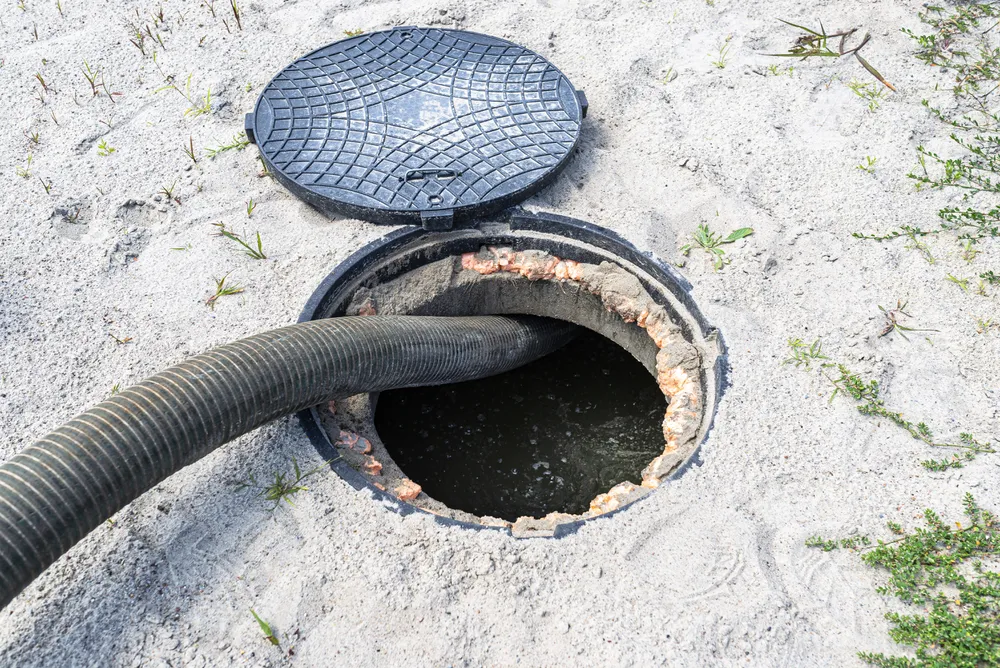
Georgia homeowners must understand septic system regulations to maintain their properties effectively. This overview covers key regulatory bodies, common septic system types, permitting processes, and maintenance requirements. Proper septic tank maintenance, including regular septic tank inspections and pumping, is crucial for system longevity and compliance with state regulations.
Understanding the Importance of Septic Systems in Georgia
Septic systems play a crucial role in Georgia‘s sanitation infrastructure, especially in areas without access to municipal sewage treatment. These systems process and treat household wastewater on-site, preventing contamination of groundwater and surface water sources. Proper maintenance of septic tanks and regular pumping are essential for ensuring effective sewage treatment and protecting public health. For more information, contact us for septic tank inspections and septic tank repairs.
For Georgia homeowners, understanding septic system regulations is vital to avoid costly septic tank repairs and potential environmental hazards. Regular septic tank inspections and timely pump-outs help maintain septic tank maintainance efficiency and prevent issues like tank overflow or drain field failure. Homeowners should be aware of local permitting requirements and associated fees when installing or modifying septic systems to ensure compliance with state regulations. For more information, contact us or visit our blog.
Key Regulatory Bodies Governing Septic Systems in Georgia
In Georgia, the Department of Public Health (DPH) oversees septic tank installation and sewage treatment regulations. The Environmental Health Section of DPH works with county health departments to enforce standards, issue permits, and conduct inspections for septic systems. These agencies ensure that septic systems are properly designed, installed, and maintained to protect groundwater and public health.
Local county health departments play a crucial role in implementing septic system regulations. They provide information on septic tank requirements, issue installation permits, and conduct site evaluations. These departments also maintain records of existing septic systems and may require homeowners to obtain a license for system modifications or repairs. By working closely with local health departments, homeowners can ensure their septic systems comply with state and county regulations.
Common Types of Septic Systems Used in Georgia Homes
Georgia homeowners commonly use conventional septic systems, which consist of a septic tank and a drainage field. These systems efficiently manage household waste by separating solids and allowing liquid effluent to filter through the soil. The effectiveness of these systems depends on proper soil conditions and regular maintenance to ensure optimal performance.
Alternative septic systems are also used in Georgia, particularly in areas with challenging soil conditions or high water tables. These systems may include aerobic treatment units, mound systems, or drip irrigation systems. While potentially more complex and costly, alternative systems can provide effective waste management solutions in areas where conventional systems may not be suitable. Homeowners should consult with local health departments and septic professionals to determine the most appropriate system for their property and ensure compliance with Georgia regulations.
Permitting Process for Installing a Septic System in Georgia
The permitting process for installing a septic system in Georgia begins with a site evaluation conducted by the local health department. This evaluation assesses soil conditions, water table levels, and property layout to determine the appropriate septic system design. Smart Septic Pros can assist homeowners in navigating this process, ensuring compliance with regulations and optimal system performance.
Once the evaluation is complete, homeowners must submit a permit application along with the required fees. The application typically includes system design plans, site maps, and perc test results. For those concerned about costs, septic tank financing options may be available. Homeowners should consult the “about us” section of their local health department’s website for detailed information on the permitting process and requirements.
Maintenance Requirements for Georgia Septic Systems
Georgia homeowners must adhere to specific maintenance requirements for their septic systems to ensure environmental health and compliance with regulations. Regular inspections and pumping of septic tanks are essential, typically recommended every three to five years, depending on household size and usage. Homeowners should also practice water conservation and avoid flushing non-biodegradable items down the toilet to prevent system overload.
Proper maintenance includes monitoring for signs of system failure, such as slow-draining fixtures or foul odors. Homeowners are encouraged to keep detailed records of all septic system maintenance and repairs. For questions or concerns, they can contact their local environmental health department via email or phone for guidance on septic system care and compliance with state regulations.
Installation Guidelines for Septic Systems in Georgia
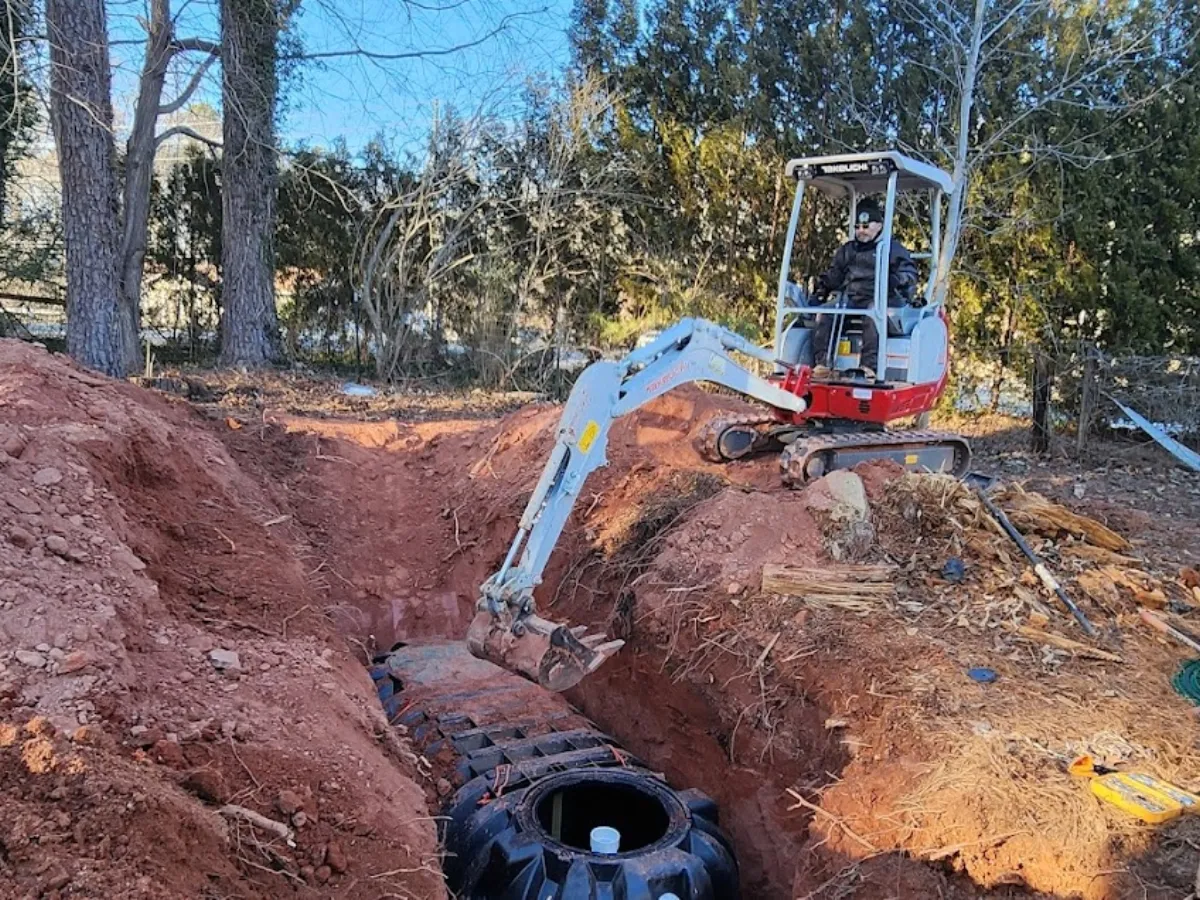
Georgia‘s septic system installation guidelines ensure proper health and environmental standards. Homeowners must follow specific steps to obtain permits, including site evaluations and selecting licensed installers. Understanding costs and avoiding common pitfalls are crucial for successful septic tank installation. This section covers the essential aspects of septic system setup, from initial inspection to completion of the septic drain field.
Steps to Obtain a Septic System Permit in Georgia
Obtaining a septic system permit in Georgia involves a series of steps, starting with a site evaluation by the local health department. This evaluation assesses soil conditions, proximity to water sources, and potential impact on neighboring properties. Homeowners must ensure their proposed septic system location doesn’t interfere with existing structures like swimming pools or sewer lines.
After the site evaluation, homeowners submit a permit application to their county health department, including detailed system plans and the required fees. Georgia regulations stipulate specific setback distances from property lines, wells, and water bodies. Once approved, the permit allows for system installation by a licensed contractor, followed by a final inspection to ensure compliance with state standards.
Site Evaluation Criteria for Septic System Installation
Site evaluation criteria for septic system installation in Georgia involve assessing soil percolation rates, groundwater levels, and topography. Environmental health specialists conduct these evaluations to determine the site’s suitability for a septic system. They analyze soil composition and drainage capabilities to ensure proper effluent treatment and prevent groundwater contamination.
The evaluation process includes soil borings, percolation tests, and site mapping. Factors such as slope, proximity to water sources, and available space for the drain field are considered. Based on these criteria, officials determine the appropriate septic system type and size for the property. The evaluation results guide homeowners and installers in designing a system that meets Georgia‘s regulatory requirements:
- Soil percolation rate assessment
- Groundwater level measurement
- Topographical analysis
- Setback distance verification
- Available space evaluation for the drain field
Selecting a Licensed Installer for Your Septic System
Selecting a licensed installer for a septic system in Georgia is crucial for ensuring proper installation and compliance with state regulations. Homeowners should verify the installer’s credentials with the Georgia Department of Public Health and request references from previous clients. Experienced installers understand local soil conditions and can recommend appropriate system designs based on site evaluations.
When choosing an installer, homeowners should obtain multiple quotes and compare the services offered. It’s essential to review the installer’s warranty terms and understand the scope of work included in the installation process. A reputable installer will provide clear communication throughout the project and assist with obtaining necessary permits. Here’s a comparison of factors to consider when selecting a septic system installer:
| Factor | Importance | Considerations |
|---|---|---|
| License and Certification | High | Verify with state authorities |
| Experience | High | Years in business, local knowledge |
| References | Medium | Contact previous clients |
| Warranty | Medium | Coverage terms and duration |
| Cost | Medium | Compare quotes, understand inclusions |
Understanding the Costs Involved in Septic System Installation
Septic system installation costs in Georgia vary depending on factors such as system size, soil conditions, and site accessibility. Homeowners should budget for expenses including site evaluation fees, permits, tank and drain field materials, labor, and potential landscaping restoration. Understanding these costs helps homeowners plan effectively and avoid unexpected financial burdens during the installation process.
Common Pitfalls to Avoid During Septic Installation
Homeowners should be cautious of common pitfalls during septic system installation in Georgia. Inadequate soil testing or ignoring site evaluation results can lead to system failure and costly repairs. Proper planning and adherence to local regulations are essential for a successful installation.
Another frequent mistake is underestimating the system size needed for the household. Homeowners should consider future needs and potential property expansions when determining tank and drain field dimensions. Cutting corners on materials or rushing the installation process can result in substandard performance and environmental issues. Key considerations for avoiding installation pitfalls include:
- Thorough soil and site evaluation
- Accurate system sizing based on household needs
- Use of quality materials approved by local health departments
- Proper documentation and permit acquisition
- Hiring experienced, licensed installers
Regular Maintenance and Inspection of Septic Systems
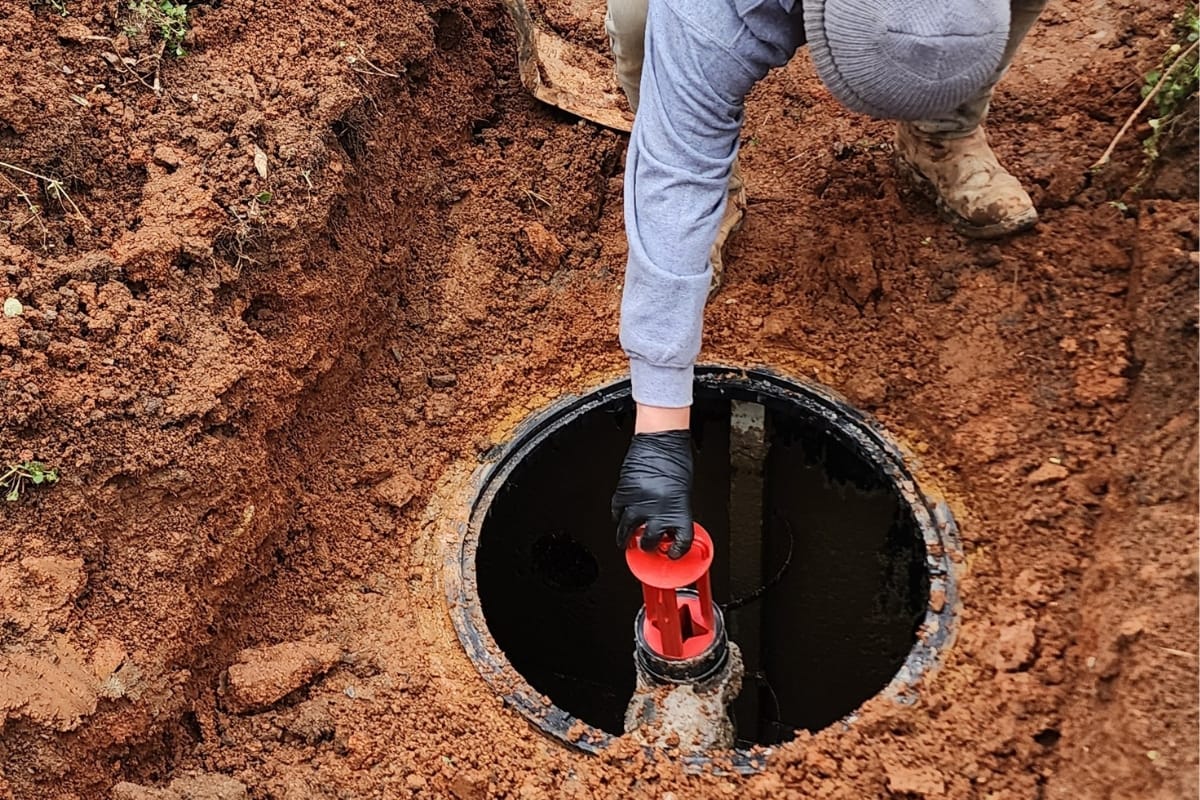
Regular maintenance and inspection are crucial for Georgia homeowners with septic systems. This section covers recommended maintenance schedules, warning signs of system issues, DIY maintenance tips, professional inspection details, and the consequences of neglect. Understanding these aspects helps homeowners maintain their septic systems effectively, ensuring longevity and compliance with state regulations.
Recommended Maintenance Schedule for Homeowners
Georgia homeowners should adhere to a regular maintenance schedule for their septic systems to ensure optimal performance and longevity. The recommended frequency for septic tank pumping is typically every three to five years, depending on household size and water usage. Homeowners should also conduct annual inspections of their system’s components, including the tank, distribution box, and drain field.
In addition to scheduled maintenance, homeowners should practice daily habits that promote septic system health. These include conserving water, avoiding the disposal of non-biodegradable items in toilets and drains, and being mindful of chemical use that could disrupt the system’s bacterial balance. Keeping detailed records of all maintenance activities and inspections helps track the system’s performance and aids in identifying potential issues early.
Signs Your Septic System Needs Attention
Homeowners should be alert to signs indicating their septic system needs attention. Common indicators include slow draining sinks or toilets, gurgling sounds in pipes, and foul odors near the septic tank or drain field. These symptoms often suggest a full tank or potential blockages in the system.
Visual cues such as pooling water or unusually lush vegetation around the drain field area can signal system failure. Homeowners who notice these signs should promptly contact a licensed septic professional for inspection and potential repairs. Early detection and intervention can prevent more severe and costly issues:
| Contact a septic professional | Possible Cause | Recommended Action |
|---|---|---|
| Slow drains | Full tank or pipe blockage | Schedule inspection |
| Foul odors | System backup or leakage | Contact septic professional |
| Pooling water | Drain field failure | Immediate professional assessment |
| Lush vegetation | Nutrient-rich effluent surfacing | System evaluation required |
How to Conduct DIY Maintenance on Your Septic System
Georgia homeowners can perform basic DIY maintenance on their septic systems to ensure optimal performance. They should regularly inspect visible components, such as tank lids and risers, for signs of damage or leaks. Homeowners can also maintain their drain fields by avoiding heavy traffic and planting only grass over the area to prevent root intrusion.
Water conservation plays a crucial role in DIY septic maintenance. Homeowners should fix leaky faucets, use water-efficient appliances, and spread out laundry loads throughout the week. They can also install effluent filters on septic tank outlets to prevent solids from entering the drain field. Regular maintenance tasks include:
| Task | Frequency | Purpose |
|---|---|---|
| Inspect tank lids | Annually | Check for cracks or damage |
| Clean effluent filter | Every 6-12 months | Prevent clogging |
| Monitor water usage | Ongoing | Avoid system overload |
| Maintain drain field | Regularly | Ensure proper absorption |
Professional Inspection: What to Expect
Professional septic system inspections in Georgia involve a thorough examination of all system components. A certified inspector assesses the tank‘s condition, checks for leaks, and evaluates the drain field’s performance. They use specialized equipment to measure sludge and scum levels in the tank, ensuring proper function.
During the inspection, homeowners should expect the following steps:
- Locating and exposing tank access points
- Measuring tank levels and checking for structural integrity
- Inspecting baffles, filters, and distribution boxes
- Evaluating drain field condition and soil absorption
- Testing for proper flow and backup issues
Consequences of Neglecting Septic System Maintenance
Neglecting septic system maintenance can lead to severe consequences for Georgia homeowners. Failure to pump the tank regularly results in solid waste buildup, causing system overload and potential drain field failure. This can contaminate groundwater and nearby water sources, posing health risks to the community and violating state environmental regulations.
Homeowners who neglect their septic systems may face significant financial burdens. Repairing or replacing a failed system can cost thousands of dollars, far exceeding the expense of routine maintenance. Additionally, property owners may incur fines for non-compliance with Georgia‘s septic system regulations, further emphasizing the importance of regular system care and inspections.
Compliance and Legal Considerations for Georgia Homeowners
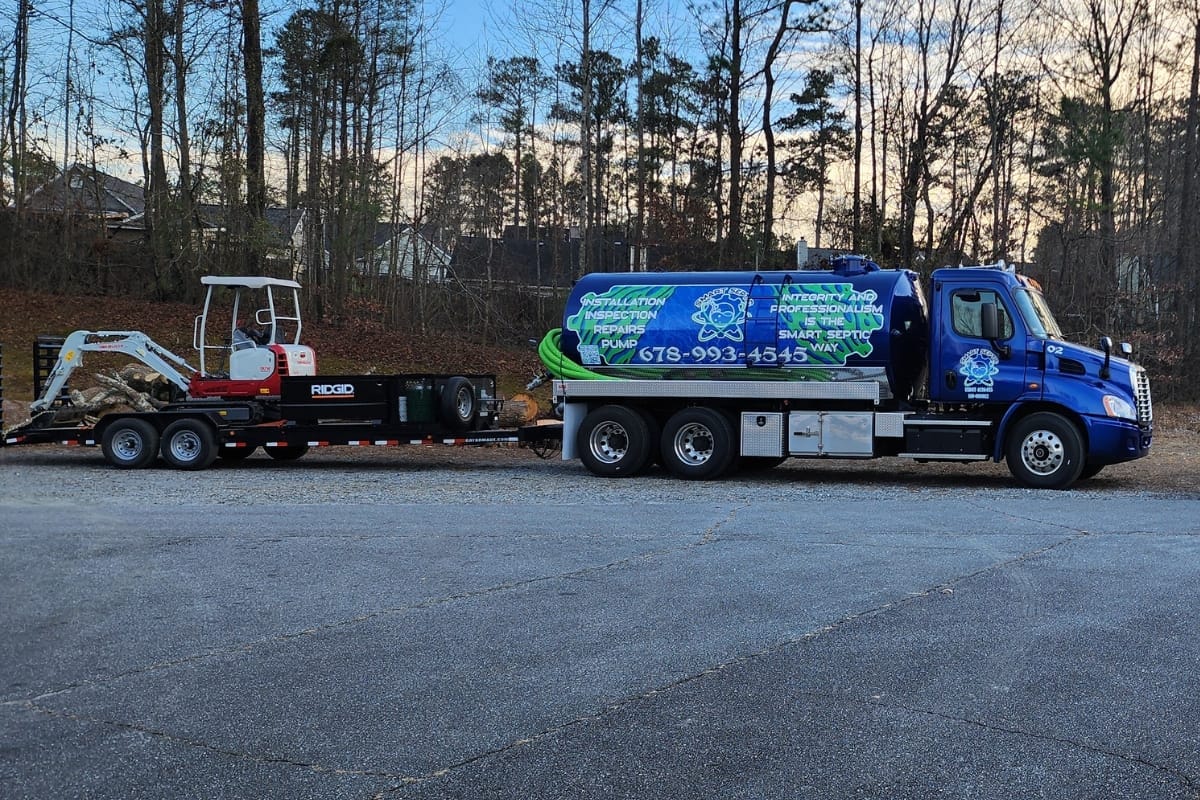
Georgia homeowners must navigate specific legal considerations and compliance requirements for septic systems. This section covers local health department regulations, actions for system failures, violation reporting procedures, documentation importance, and assistance resources. Understanding these aspects ensures homeowners maintain compliant systems and avoid potential legal issues.
Understanding Local Health Department Regulations
Local health departments in Georgia play a crucial role in regulating septic systems. These departments enforce state-mandated rules, issue permits for system installation and repairs, and conduct site evaluations. Homeowners must comply with specific setback requirements, system sizing guidelines, and maintenance schedules set by their local health department.
Georgia‘s county health departments maintain records of existing septic systems and require homeowners to obtain approval for system modifications. They also conduct periodic inspections to ensure ongoing compliance with state regulations. Homeowners should familiarize themselves with their county’s specific requirements and contact their local health department for guidance on septic system management and regulatory updates.
What to Do if Your Septic System Fails
When a septic system fails in Georgia, homeowners must act swiftly to address the issue and comply with state regulations. They should immediately contact their local health department to report the failure and schedule an inspection. The health department will assess the situation and provide guidance on necessary repairs or system replacement.
Homeowners facing septic system failure should also engage a licensed septic contractor to diagnose the problem and develop a repair plan. This plan must be approved by the local health department before any work begins. During this process, homeowners should take steps to minimize water usage and avoid further environmental contamination while awaiting system repairs.
Procedures for Reporting Septic System Violations
Georgia homeowners witnessing septic system violations can report them to their local county health department. The reporting process typically involves contacting the environmental health division, providing details about the suspected violation, and requesting an inspection. Health officials will investigate the complaint and may issue citations or require corrective actions if violations are confirmed.
Anonymous reporting options are available for those concerned about privacy. Homeowners should document any observed issues, such as sewage overflow or strong odors, to support their complaint. Prompt reporting of violations helps protect public health and the environment, ensuring that septic systems in Georgia communities operate within legal parameters.
Importance of Proper Documentation and Records
Proper documentation and record-keeping are essential for Georgia homeowners with septic systems. Maintaining detailed logs of inspections, pumping schedules, and repairs helps ensure compliance with state regulations and facilitates efficient system management. These records serve as valuable references during property transfers or when addressing concerns with local health departments.
Homeowners should create a comprehensive file containing septic system permits, design plans, and maintenance history. This documentation proves invaluable when planning future home improvements or resolving disputes related to system performance. A well-organized record system includes the following components:
| Document Type | Purpose | Frequency of Update |
|---|---|---|
| Installation Permit | Proof of legal system setup | One-time |
| System Design Plans | Reference for repairs or modifications | As needed |
| Inspection Reports | Track system condition | Annually |
| Pumping Records | Demonstrate regular maintenance | Every 3-5 years |
| Repair Invoices | Document system improvements | As repairs occur |
Resources for Homeowners: Where to Seek Assistance
Georgia homeowners seeking assistance with septic system regulations can turn to various resources. The Georgia Department of Public Health offers comprehensive guidance on septic system management, including online resources and educational materials. County health departments provide localized support, offering consultation services and information specific to regional requirements.
For technical assistance, homeowners can contact certified septic system contractors or join local homeowner associations that often share valuable insights on system maintenance. The University of Georgia Cooperative Extension also provides educational programs and publications to help homeowners understand and comply with septic system regulations, ensuring proper system care and environmental protection.
Frequently Asked Questions
What are the main septic system regulations for homeowners in Georgia?
Georgia homeowners must maintain their septic systems, have them inspected regularly, and obtain permits for installation or repairs. Systems must be properly sized, located away from water sources, and use approved materials. Failure to comply can result in fines or property use restrictions.
How often should Georgia homeowners have their septic systems inspected?
Georgia homeowners should have their septic systems inspected every 3 to 5 years. Regular inspections help prevent costly repairs, maintain system efficiency, and protect groundwater quality. Factors like household size, water usage, and system age may require more frequent checks.
Are there specific installation requirements for septic systems in Georgia?
Georgia requires septic systems to be installed by licensed contractors and meet specific regulations. These include proper sizing based on household size, suitable soil conditions, minimum setback distances from property lines and water sources, and regular inspections to ensure compliance with state and local codes.
What maintenance practices are recommended for septic systems in Georgia?
Regular septic tank pumping every 3-5 years, avoiding excessive water use, and not flushing non-biodegradable items are essential maintenance practices for Georgia septic systems. Inspecting the drain field, using septic-safe products, and monitoring for signs of malfunction also help ensure optimal system performance.
What legal considerations should Georgia homeowners be aware of regarding septic systems?
Georgia homeowners must comply with state and local regulations for septic system installation, maintenance, and inspection. They should obtain proper permits, adhere to setback requirements, schedule regular pumping, and disclose system information during property transfers. Failure to comply may result in fines or legal consequences.
Stay Compliant and Stress-Free with Smart Septic Pros
Navigating Georgia’s septic system regulations can feel overwhelming—but you don’t have to do it alone. At Smart Septic Pros, we combine deep industry expertise with a commitment to proactive care and exceptional customer service. Whether you need routine septic maintenance, inspections, or emergency repairs, our experienced team is here to help you stay compliant, protect your property, and avoid costly surprises.
Our certified technicians ensure your system operates efficiently while adhering to all regulations—saving you headaches and costly fines. Take action today! Call us at 678-993-4545 or fill out our quick online contact form to schedule a consultation. Let Smart Septic Pros handle the details so you can enjoy peace of mind.


